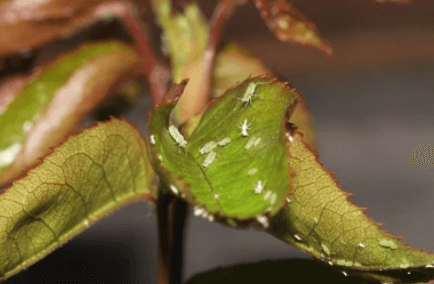Development of Verticillium Insecticide
Verticillium is an entomopathogenic fungus with a wide geographical distribution and host range. It is commonly used as a biological control agent for insect pests, parasitizing various insects such as aphids, whiteflies, locusts, and other spices. Verticillium can cause insect death by colonizing insects and producing enzymes and toxins that break down or interfere with their physiological structures. In addition, Verticillium produces spores that also infect other susceptible insects, making its development a promising application.
Lifeasible is dedicated to agricultural and forestry insect pest control. We offer a variety of effective solutions for developing greener, more environmentally friendly biopesticides. We combine various advanced biotechnologies to greatly enhance Verticillium's insecticidal properties as an insecticide. This makes Verticillium insecticide a valuable addition to integrated pest management.

What are the action characteristics of Verticillium insecticides?
The advantages of using Verticillium as an insecticide include its cost-effectiveness, environmental safety, and the ability to target specific pests without harming beneficial insects. Therefore, Verticillium in pest control shows action characteristics in sustainability and environmental friendliness.
- Environmentally friendly, Verticillium pesticides, unlike chemical pesticides, do not leave harmful residues in the environment. Also, Verticillium has low toxicity to mammals, making it a safe choice for use in agriculture and other settings.
- Verticillium penetrates insects' bodies and kills them from the inside.
- Highly cost-effective. Production of Verticillium can be achieved using inexpensive materials and methods, making Verticillium more cost-effective when compared to synthetic insecticides.
- Resistance management. Using chemical insecticides can lead to resistance to the insecticide in the target pest, which can affect the application's effectiveness. Using Verticillium in insecticides provides an alternative mode of action, making pests less likely to develop resistance.
- The use of Verticillium in pest control can promote sustainable agricultural practices. It can also greatly reduce the reliance on synthetic pesticides in agroforestry industries and promote sustainable development of agroforestry industries.
What do we offer for Verticillium insecticide development?
We use advanced biotechnology to play a crucial role in Verticillium insecticide development.
- Genetic engineering techniques. We manipulate Verticillium genes to enhance its insecticidal properties. This was achieved mainly by introducing genes that produce insecticidal toxins.
- Fermentation technology. We optimize the fermentation process, which produces large quantities of fungi in a shorter period.
- Formulation technology. Using formulation technology, we can develop more insecticidal and effective formulations of Verticillium that can be applied directly to plants to control pest infestations.
Advantages of our services

Lifeasible is committed to biopesticide development and aims to provide comprehensive solutions for the biological control of harmful insect pests and to promote sustainable agriculture. If you are interested in us, please feel free to contact us.
For research or industrial raw materials, not for personal medical use!

